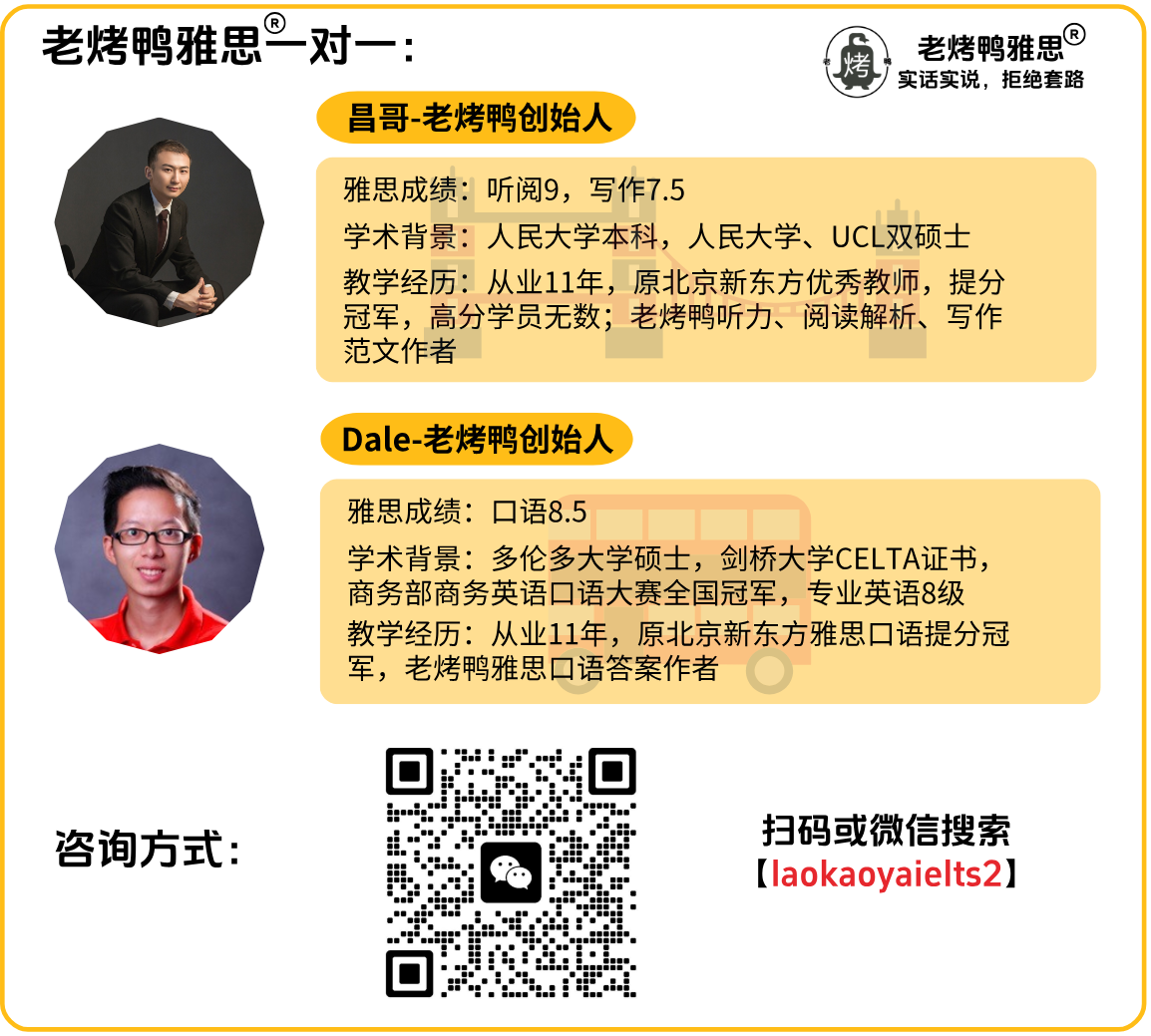剑桥雅思5 test 1 Section 3听力原文与答案
该部分的课程咨询场景其实更常见于Section 1,现在的考试中Section 3还是以课堂反馈、作业讨论为主。前面的5道选择题都十分简单,不仅选项和题干比较简短,而且干扰项的设置也不怎么具有迷惑性。后面5道总结型填空的难度较大,主要体现在节奏快,答案不明显上。纵观这10道题目,并没有哪一道特别容易错,或者设置的十分巧妙的。
点击查看这篇雅思听力中需要大家掌握的重点词汇以及具体题目的答案解析:
雅思备考听力篇 剑5 test 1 section 3 雅思听力高频词汇
剑5 test 1 Section 3雅思听力原文
ANDREW: Excuse me, I was told to come here for advice about, erm, Management Diploma courses?
MONICA: You’ve certainly come to the right place. Hi, my name is Monica.
ANDREW: Nice to meet you. My name is Andrew, Andrew Harris.
MONICA: So, Andrew, have you seen our diploma course prospectus yet?
ANDREW: Yes, I’ve already looked at it. In fact, I thought the information on course content was really useful, but I’m afraid I’m a bit confused by all the different ways you can do the course: full-time intensive, part-time and so on.
MONICA: Well, let’s see if I can help. I think each course type has its advantages and disadvantages, so it really depends on you – your own study habits, and your financial circumstances, of course. Are you working at the moment?
ANDREW: Yes. I’ve been working in the administration section of the local hospital for the last three years. And before that I worked in the office of a computer engineering company for two years. So, I’ve got about five years of relevant work experience. And what I’m hoping to focus on is Personnel Management. Q21
MONICA: I see. And are you planning to leave your current job to study, or are you thinking about just taking a year off?
ANDREW: I want to know what my options are, really. I don’t want to quit my job or anything and my employers are keen for me to get some more qualifications but obviously, it would be better if I could do a course without taking too much time away from work.
MONICA: Right, so you don’t really want to do the full-time course, then?
ANDREW: No, not really. It’s also a question of finances. You see, my office has agreed to pay the cost of the course itself, but I would have to take unpaid leave if I want to study full-time and, well, I don’t think I could afford to support myself with no salary for a whole year. Q22
MONICA: OK. Well, you have two other possibilities: you could either do the part-time course – that would be over two years and you wouldn’t have to take any time off work – or you could do what we call a ‘modular’ course. You could do that in eighteen months if you wanted – or longer, it’s quite flexible and it would be up to you. Q23
ANDREW: Mmm. So what does the part-time course involve?
MONICA: For that you would join an evening class and have a lecture twice a week. Then, you’d have to attend a seminar or discussion workshop one weekend a month.
ANDREW: What kind of coursework would I have to do?
MONICA: Well, it’s a mixture. You’d be expected to write an essay each month, which counts towards your final assessment. You have a case study to do by the end of the course, which might involve doing a survey or something like that, and also you need to hand in a short report every four weeks. Q24/Q25
ANDREW: So, that’s quite a lot of work, then, on top of working every day. It sounds like a lot of studying – and really tiring.
MONICA: Yes, you certainly wouldn’t have much free time!
ANDREW: What about the ‘modular’ course? What would I have to do for that?
MONICA: That’s where you get the opportunity to study full-time for short periods. That way you can cover a lot of coursework and attend lectures and seminars during the day. And each module lasts for one term, say, about twelve weeks at a time. There are obvious advantages in this – the main one being that you can study in a much more intensive way, which suits some people much better. Q26, Q27, Q28
ANDREW: And how many of these ‘modules’ would I have to do to get the diploma?
MONICA: The current programme is two modules – and then you have to choose a topic to work in more depth – but you can base that on your job, and so you don’t need to be away from the office, and how long it takes is up to you. The important thing is that you don’t have to study and work. You can focus on one thing at a time. Q29, Q30
ANDREW: Yes, I can see that. It certainly sounds attractive! It would be more expensive, though. I mean, I’d have to support myself without pay for each module.
MONICA: That’s true, so that might be a problem for you. Look, why don’t you talk this over with your employers and …
剑5 test 1 Section 3雅思听力答案
21. B
22. A
23. C
24-25. BD
26. full-time
27. a term / one term
28. intensive
29. two modules / two terms
30. a topic / one topic




